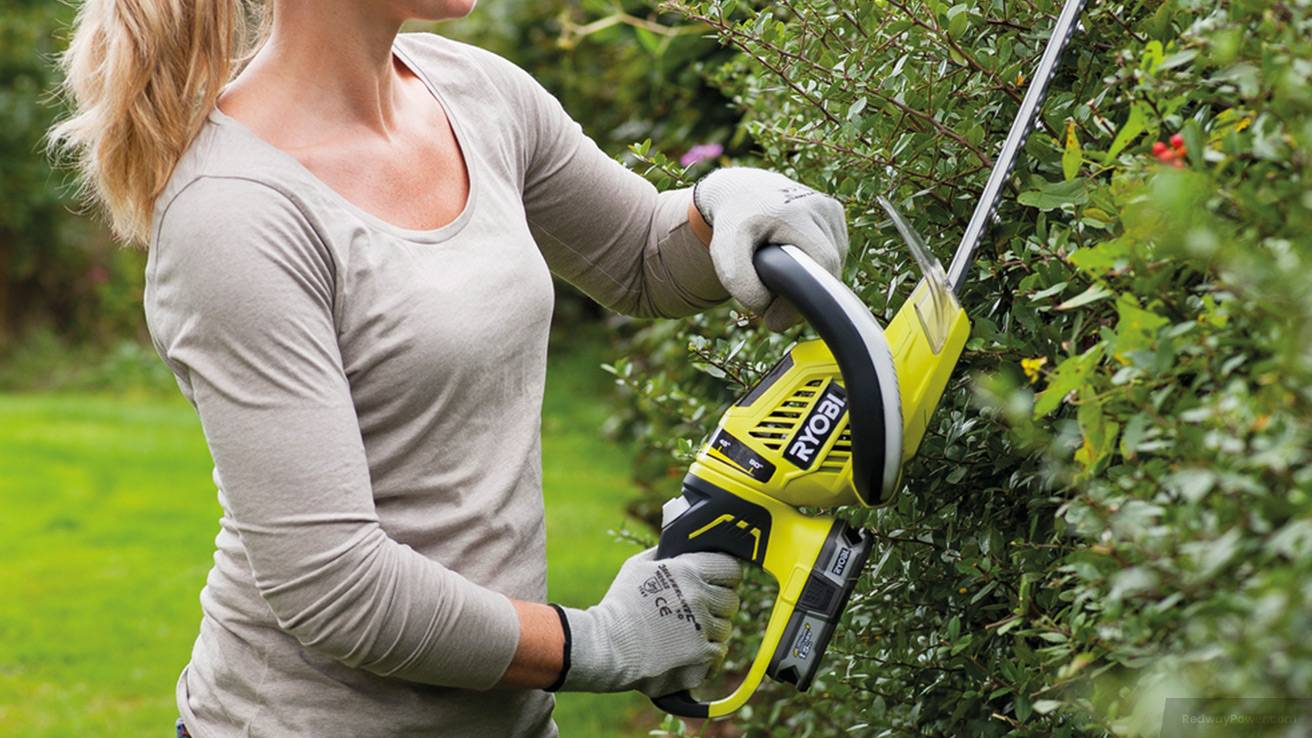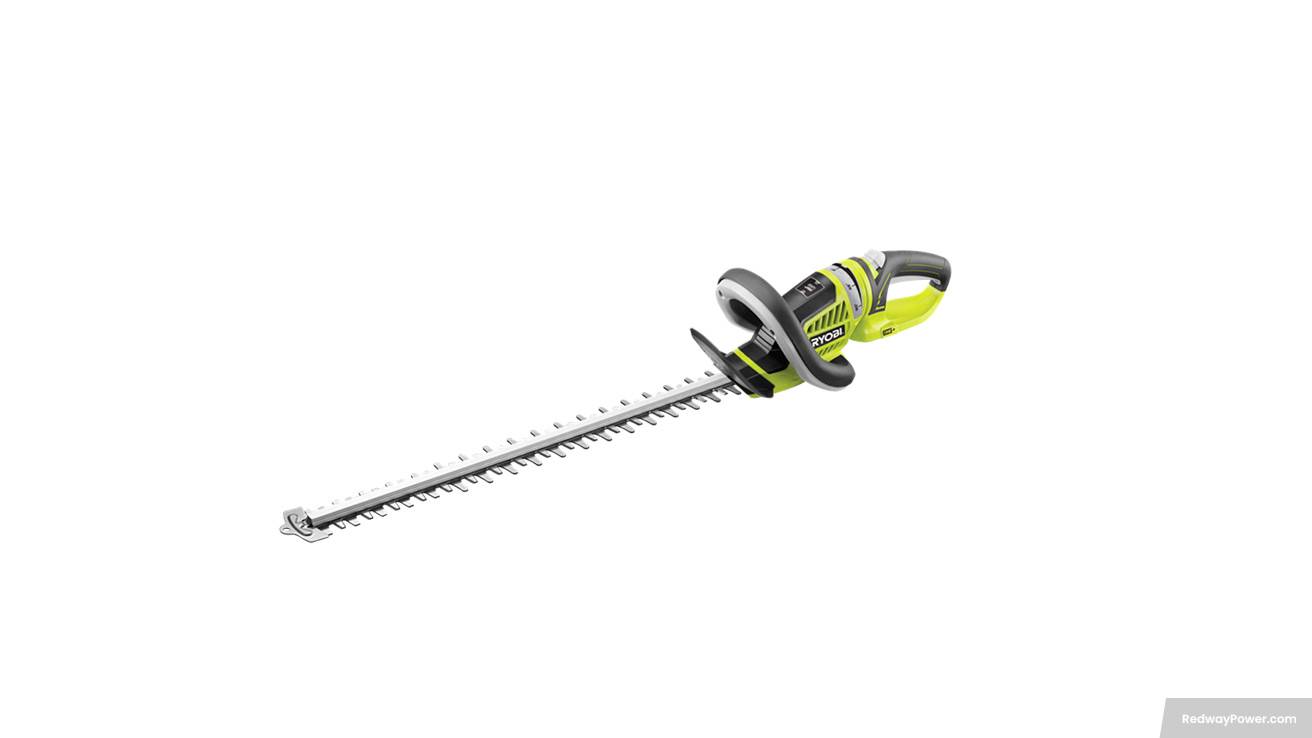Looking for a dependable tool to groom your hedges? This post delves into Ryobi hedge trimmers, examining their features, pros, and cons, along with customer reviews. Whether you’re a seasoned gardener or a green thumb beginner, finding the right trimmer is crucial. Let’s unravel the world of Ryobi and see if they live up to their reputation!
Features of Ryobi Hedge Trimmers
Ryobi hedge trimmers bring innovation and efficiency to your yard work. Let’s explore their standout features:
- Dual-Action Blades: Experience precision with dual-action blades that move in opposite directions, minimizing vibration for a smoother and cleaner cutting performance.
- Extended Reach: Say goodbye to ladders! Ryobi hedge trimmers feature adjustable shafts or telescoping handles, enabling easy trimming of hard-to-reach areas, ensuring both efficiency and safety.
- Rotating Heads: Achieve flexibility in hedge shaping with rotating heads that adjust to different angles. Perfect for various hedge sizes and shapes, providing versatility in your landscaping tasks.
- Anti-Jam Technology: No more interruptions. Some models feature anti-jam technology, preventing blades from getting stuck on thicker branches, ensuring a seamless trimming experience.
Ryobi hedge trimmers combine affordability with top-notch quality, catering to both professional landscapers and gardening enthusiasts. Elevate your yard maintenance with these feature-packed tools!
Pros and Cons of Using a Ryobi Hedge Trimmer
Unlocking the benefits and considerations of using Ryobi hedge trimmers:
Pros:
- Versatility: Choose from various models and sizes to match your trimming needs, making Ryobi hedge trimmers adaptable to tasks ranging from small hedges to large shrubs.
- Cutting Power: Experience impressive cutting power with sharp blades and high-performance motors, effortlessly handling thick branches and tough foliage.
- Ease of Use: Designed with user comfort in mind, Ryobi trimmers feature ergonomic handles and lightweight construction, minimizing fatigue during extended trimming sessions.
Cons:
- Battery Life: Cordless models may require frequent recharging for larger projects, impacting the convenience of use.
- Noise Level: Like many power tools, Ryobi hedge trimmers can be noisy, potentially posing an issue in areas with strict noise regulations or sensitive neighbors.
- Cost: While offering durability and performance, Ryobi hedge trimmers may have a slightly higher upfront cost compared to some competitors.
In conclusion, despite minor drawbacks, Ryobi hedge trimmers are favored by both professionals and DIY enthusiasts for their durability, user-friendly design, and exceptional performance.
Customer Reviews and Ratings

Discover what users have to say about Ryobi Hedge Trimmers through their experiences and ratings:
- Lightweight Maneuverability: Customers highlight the trimmers’ lightweight design and ease of maneuvering, making them ideal for various tasks, from small backyard hedges to larger commercial properties.
- Sharp Blades for Clean Cuts: Positive feedback revolves around the sharpness of the blades, ensuring clean and precise cuts, contributing to a satisfying trimming experience.
- Efficient Battery Life: Users appreciate the efficient battery life, allowing them to complete entire trimming sessions without the need for frequent recharging, adding to the tools’ convenience.
While reviews are generally positive, some users note concerns about long-term durability, especially under heavy use or when cutting thicker branches. Additionally, a few users mention noise-related frustrations. Individual experiences may vary, so considering multiple sources is advisable before making a final decision.
Comparison with Other Brands
Exploring the landscape of hedge trimmer brands can be daunting. Here’s a concise look at how Ryobi compares with other major players:
- Black+Decker: Renowned for reliability and durability, Black+Decker competes with Ryobi. While Black+Decker emphasizes robustness, Ryobi stands out for its affordability and innovative features.
- Echo: Echo hedge trimmers are preferred by professionals for their powerful engines and cutting performance. Known for longevity and sturdy construction, Echo offers a different angle in the market compared to Ryobi.
- Husqvarna: A heavyweight in quality, Husqvarna competes with Ryobi in the hedge trimmer arena. With models tailored for residential and commercial use, their ergonomic designs provide comfort during extended trimming sessions.
Choosing the right brand boils down to your unique needs, preferences, and budget constraints. Key considerations include power, blade length, weight distribution, ease of use, warranty coverage, and customer support. Thorough research on each brand’s offerings is essential for making an informed decision.
Tips for Maintaining Your Ryobi Hedge Trimmer
To keep your Ryobi hedge trimmer performing at its best, follow these simple maintenance tips:
- Clean After Each Use: Remove debris and sap from the blades with a soft brush or cloth after trimming. This quick step prevents buildup and ensures efficient cutting.
- Regular Lubrication: Apply a thin layer of oil to the blades and moving parts to reduce friction and maintain smooth operation. Consult your user manual for specific lubrication recommendations.
- Sharpen Blades When Needed: Dull blades hinder trimming and can harm plants. Keep the edges sharp using a file or hedge trimmer sharpening tool.
- Proper Storage: When not in use, store your Ryobi hedge trimmer in a dry place away from sunlight and moisture. Consider using a blade cover or sheath for extra protection.
- Regular Inspection: Before each use, check components like the power cord, handles, switches, and safety features for signs of wear or damage.
By following these maintenance steps, you’ll extend the life of your Ryobi hedge trimmer, ensuring reliable performance whenever it’s time for your next trimming session!
Is It Worth Investing in a Ryobi Hedge Trimmer?

Considering features, pros, cons, and customer reviews, here’s why investing in a Ryobi hedge trimmer is a smart choice:
- Top-Notch Performance: Ryobi hedge trimmers offer stellar performance, durability, and versatility at an affordable price. Their powerful motors, sharp blades, and ergonomic designs make hedge trimming effortless.
- Cordless Convenience: The cordless design provides freedom of movement without cords getting in the way. No need to worry about electrical outlets or emissions – just grab and trim.
- Solid Reputation: Ryobi has a strong reputation for manufacturing high-quality tools, and their hedge trimmers are no exception. Built to withstand tough conditions, they consistently deliver reliable service.
- Customer Approval: Positive feedback from users highlights their superior performance, especially in handling thick branches. Ease of use and comfortable grips are frequently praised in customer reviews.
- Value for Money: When compared to other brands, Ryobi hedge trimmers stand out in functionality and value for money. Many users find them superior to higher-priced competitors.
In conclusion, a Ryobi hedge trimmer is a reliable, efficient, and cost-effective solution for maintaining your hedges or shrubs. With proper maintenance, you’ll enjoy consistent and excellent results without exceeding your budget. So, why wait?

